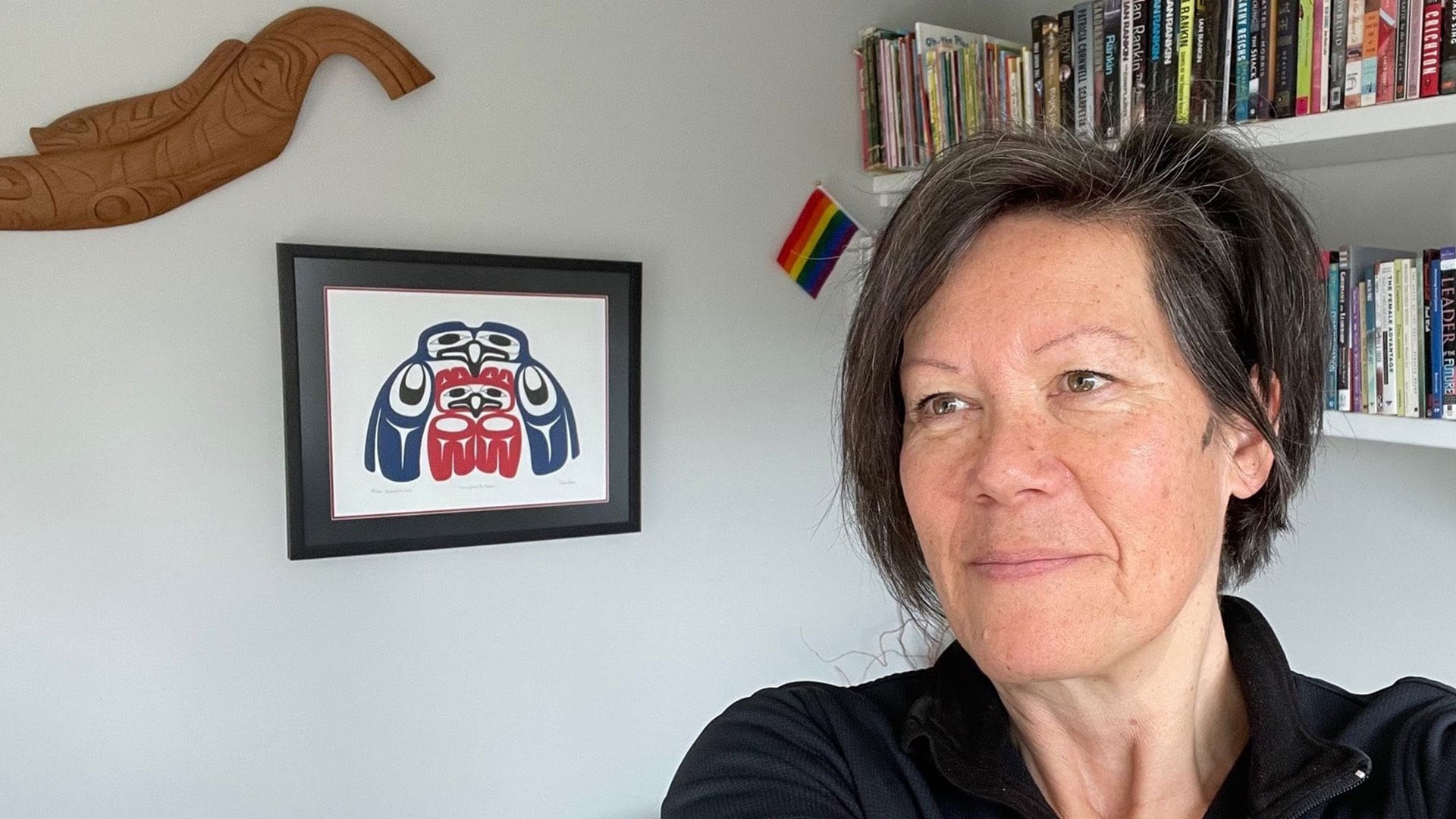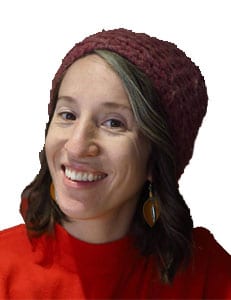
Newborn Snuneymuxw and Cree baby wrapped in her moss bag overlooking her ancestral homelands.
The First Nations Summit (FNS) says the B.C. government discussed apologizing to families impacted by birth alerts in a meeting with Indigenous leaders on Mar. 1.
“We were advised that they are certainly open to doing that,” says Cheryl Casimer, political executive of the FNS and citizen of the Ktunaxa Nation.
“They’ve committed to working with us and other leaders in the province to determine the best way forward in providing that apology and addressing the situation.”
Birth alerts are issued by social workers when they believe an expectant parent may put their newborn in danger. The social work practice involves flagging that person to hospital staff and sharing their personal information without their consent.
As revealed by IndigiNews in January, B.C.’s Ministry of the Attorney General advised the Ministry of Children and Family Development (MCFD) on May 6, 2019 that “the use of hospital alerts, and other activities involving the disclosure of information without the consent of expectant parents is both illegal and unconstitutional,” according to MCFD’s records.
After receiving this note from the Attorney General’s office, MCFD didn’t ban birth alerts until four months later, on Sept. 16, 2019.
‘Families are due a public apology’
Cheryl Casimer has been calling on the province to publicly apologize to families impacted by birth alerts since January, and she’s not alone.
Jennifer Charlesworth, B.C.’s Representative for Children and Youth, called for a public apology in a Jan. 14 statement.
“We believe that these families are due a public apology from the provincial government, which should acknowledge how wrong and harmful this practice was,” she wrote.
Debbie Scarborough, the provincial manager of women and child protection with the B.C First Nations Justice Council likewise says “an apology is absolutely in order.”
“When you think about the practice and you apply it to yourself, it’s almost incomprehensible,” she says.
The council works to “achieve better outcomes for Indigenous people in the justice system,” and was created in 2016 by the BC Assembly of First Nations (BCAFN), the First Nations Summit and the Union of British Columbia Indian Chiefs (UBCIC).
Scarborough says the council hasn’t yet heard from MCFD on this issue.

She believes that the apology should include ceremony and that it should be personable.
“There’s a lot of hurt and we have to do better,” she says.
Debra Fisher, minister of children and families for Métis Nation British Columbia (MNBC), is also calling for an apology from the province, in addition to “funding for those who have suffered from this so they may begin a healing journey.”
In an email to IndigiNews, she writes that she wants to see “restitution in the form of taking responsibility and providing opportunities for the children … to rejoin their birth families as soon as possible.”
“Families should not have to be financially responsible for connecting with their families when the impetus falls on the government to do so,” she writes.
Fisher says MNBC is not currently discussing birth alerts with the province, but they are “engaged with the province on a number of issues to do with health care and Métis-specific care” and they “look forward to engaging with them on this matter, too.”
Ministry won’t confirm whether it will apologize
In a series of emails dating back to January, IndigiNews has repeatedly asked MCFD whether they will apologize to families impacted by birth alerts.
However government representatives did not at any point directly respond to that question — saying instead that they were “engaging with Indigenous leadership on these issues.”
“Any discussions around a formal apology need to be held first with Indigenous communities and developed in collaboration with those communities,” a spokesperson for MCFD told IndigiNews via email on Jan. 19.
When IndigiNews asked MCFD which individuals or organizations they’re engaging, a spokesperson wrote via email: “The ministry speaks regularly with First Nations and Métis organizations and through existing tables where together we explore policy issues and changes.”
IndigiNews also contacted the BCAFN and the UBCIC to confirm if the province has reached out to them on this issue. They did not respond by deadline.
Nations need to be engaged
The government needs to engage not only with political organizations like the First Nations Summit, but also with individual nations, says Casimer.
“The families that have been impacted by this belong to nations, and those nations are the proper rights and title holders, and they need to be working and talking specifically to them,” she says.
“Speaking to the leadership council representatives does not relinquish them of their duty to to engage with First Nations directly … I’m not sure who they will be speaking to, but I think they were going to be reaching out to, you know, like Elders groups, to make sure that what they work on is culturally appropriate, and will be seen as being meaningful.
“At the end of the day, it’s their apology, and they need to make sure that they do it properly.”
Exactly when an apology might happen is unknown. When IndigiNews asked MCFD for a timeline, the ministry didn’t respond to this question.
What about non-Indigenous families?
MCFD records show that there were at least 444 birth alerts in B.C. between Jan. 1, 2018 and Aug. 31, 2019 — and Indigenous families are disproportionately impacted.
In 2018, 58 per cent of parents subject to birth alerts in B.C. were Indigenous, according to MCFD.
That said, birth alerts have also been issued about non-Indigenous parents. IndigiNews asked the ministry what steps it plans to take with respect to these parents.
“While the ministry recognizes the broad impacts of previous policy on vulnerable communities, we know birth alerts disproportionately affected Indigenous mothers, families and children,” says an MCFD spokesperson via email.
“The Ministry is consulting closely with Indigenous groups on this matter as an important step,” he adds.
Birth alerts have been banned in all territories and some provinces, but they’re still being used in Newfoundland and Labrador, Nova Scotia, New Brunswick and Quebec.
This is part of a series about the legality of #BirthAlerts and the implications for families. If you have a story to share about your own lived experience, email [email protected]












